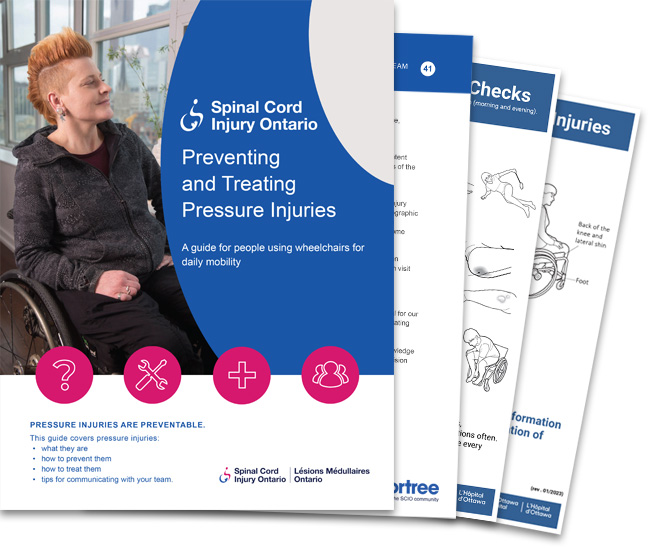Today, Randy Upper discusses spinal cord injury and aging, and how mental health and spinal cord injury are closely related. Tory and Randy cover many topics, including aging, spinal cord injury, mental health, and coping techniques. Randy sustained a spinal cord injury more than 30 years ago and is now a Registered Social Worker with Ontario College of Social Workers and Social Service Workers. He has experience in providing psychoeducation and counseling to individuals with physical and cognitive disabilities and he is currently working as a Health Educator and Clinical Research Assistant in the RehabPsych Lab. We were thrilled to have him share his knowledge and life experience.
This video content was created as part of a project funded by a grant from the Craig H. Neilsen Foundation to Spinal Cord Injury Ontario.
The physical and physiological changes brought on by aging, such as those in the musculoskeletal, cardiovascular, gastrointestinal (GI), pulmonary, and integumentary systems, can be made worse by spinal cord injury (SCI). Does a spinal cord injury shorten life? A 20-year-old who has a high tetraplegic spinal injury and lives for at least a year can expect to live for approximately 34 years. Everyone is impacted by aging, and it’s merely a further step on the road of life. However, a spinal cord injury (SCI) can hasten aging and make other health issues more prevalent as people get older.
Why does aging matter so much to those with SCI? As we get older, our body slows down. With aging, a lot of once-easy things become more difficult. Everyone, especially those with SCI, can relate to this. Better medical care has led to longer lifespans for those with SCI. You can experience health issues as you get older that you didn’t have earlier in life. Chronic health issues are those that persist for six months or more and call for ongoing medical attention. They could restrict daily activities. They could be the result of age-related conditions that are frequent, including arthritis, which affects a lot of middle-aged and older persons. Chronic illnesses could be connected to SCI. Secondary health issues are chronic conditions that have a connection to SCI.
If you’ve found this video, you’re probably looking for more information about:
- spinal cord injury and aging
- mental health and spinal cord injury
- Randy Upper talks about aging with a disability
- The challenges of aging with a spinal cord injury
- how does spinal cord injury affect the body?
- how to deal with spinal cord injury
- life with spinal cord injury
- mental health spinal cord injury and paraplegia
- SCI Ontario, spinal cord injury and emotional health
People with SCI begin to age more quickly than people without SCI. It’s possible that some organ systems in persons with SCI don’t function as well as those in people of the same age without SCI. People with SCI are more prone to experience earlier aging in their musculoskeletal (muscles and bones), endocrine (glands), and cardiovascular (heart) systems. Additionally, chronic discomfort, bone loss, pressure injury (pressure sores), kidney and bladder stones, and pressure sores are more common in people with SCI than in the general population.
If you enjoyed this video about spinal cord injury and aging, and how mental health and spinal cord injury are connected, please remember to like, share, subscribe, and leave a comment if you have any questions or suggestions. I hope to see you here again soon!
This video content was created as part of a project funded by a grant from the Craig H. Neilsen Foundation to Spinal Cord Injury Ontario.






